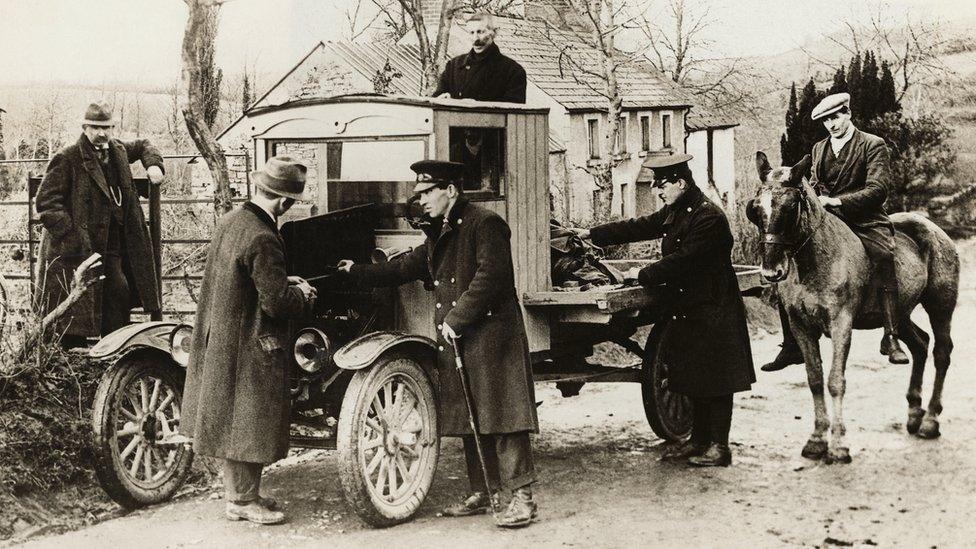NI 100: Parliament's temporary home in a Belfast college
- Published
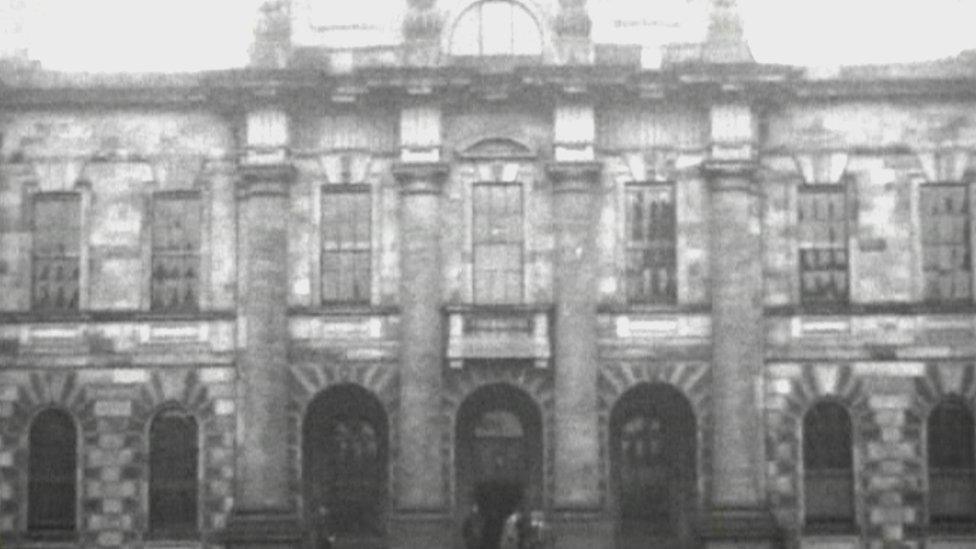
Politicians gather on the steps of the college before the first session of the new parliament in September 1921
It is 100 years since a Presbyterian college in south Belfast began operating as a makeshift Northern Ireland parliament.
The students moved out and politicians took over in September 1921, while they waited for Stormont to be built.
The building on the outskirts of east Belfast was not completed until 1932, which meant the Union Theological College on Botanic Avenue was the centre of political power in Belfast for more than a decade.
Northern Ireland was created in May 1921 after the partition of Ireland.
Political events moved quickly during that period, which meant the first meetings of the newly-elected Northern Ireland parliament were hastily-arranged.
Two meetings were held in the chamber of Belfast City Council in June 1921, while an alternative venue was sought.
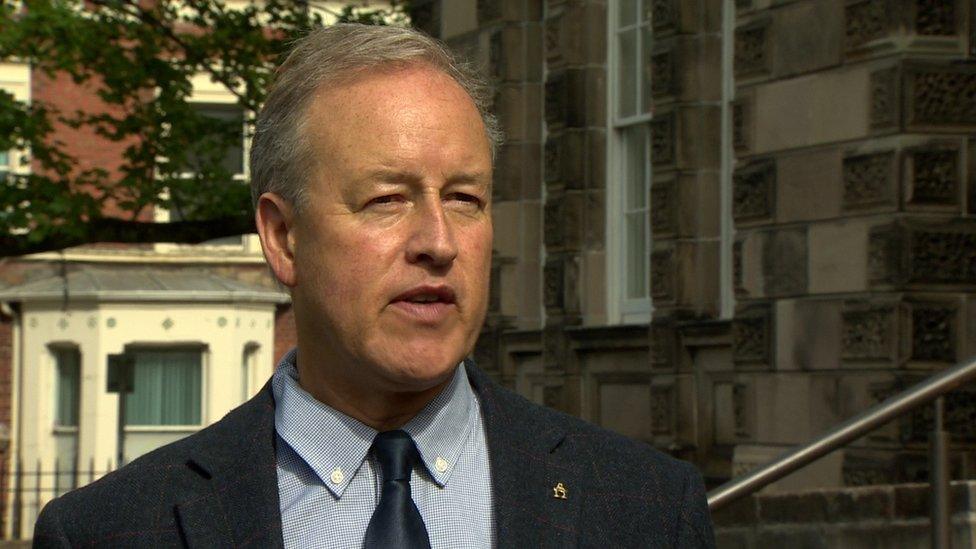
Rev Prof Gordon Campbell said the temporary parliament did not disrupt the training of ministers
Negotiations with the Presbyterian Church for use of their south Belfast training college took place during the summer but there was a dispute over the proposed rent.
An offer of £5,000 a year was turned down, and eventually £8,000 was agreed.
The Rev Prof Gordon Campbell, the current college principal, said the rent agreement should be seen in its historical context.
"It must have done the Presbyterian Church a great deal of good financially in what was a very economically difficult period.
"It doesn't seem to have disrupted the church's aim of training its ministers. They could simply do that in another place and did so for much longer than the three years initially agreed."
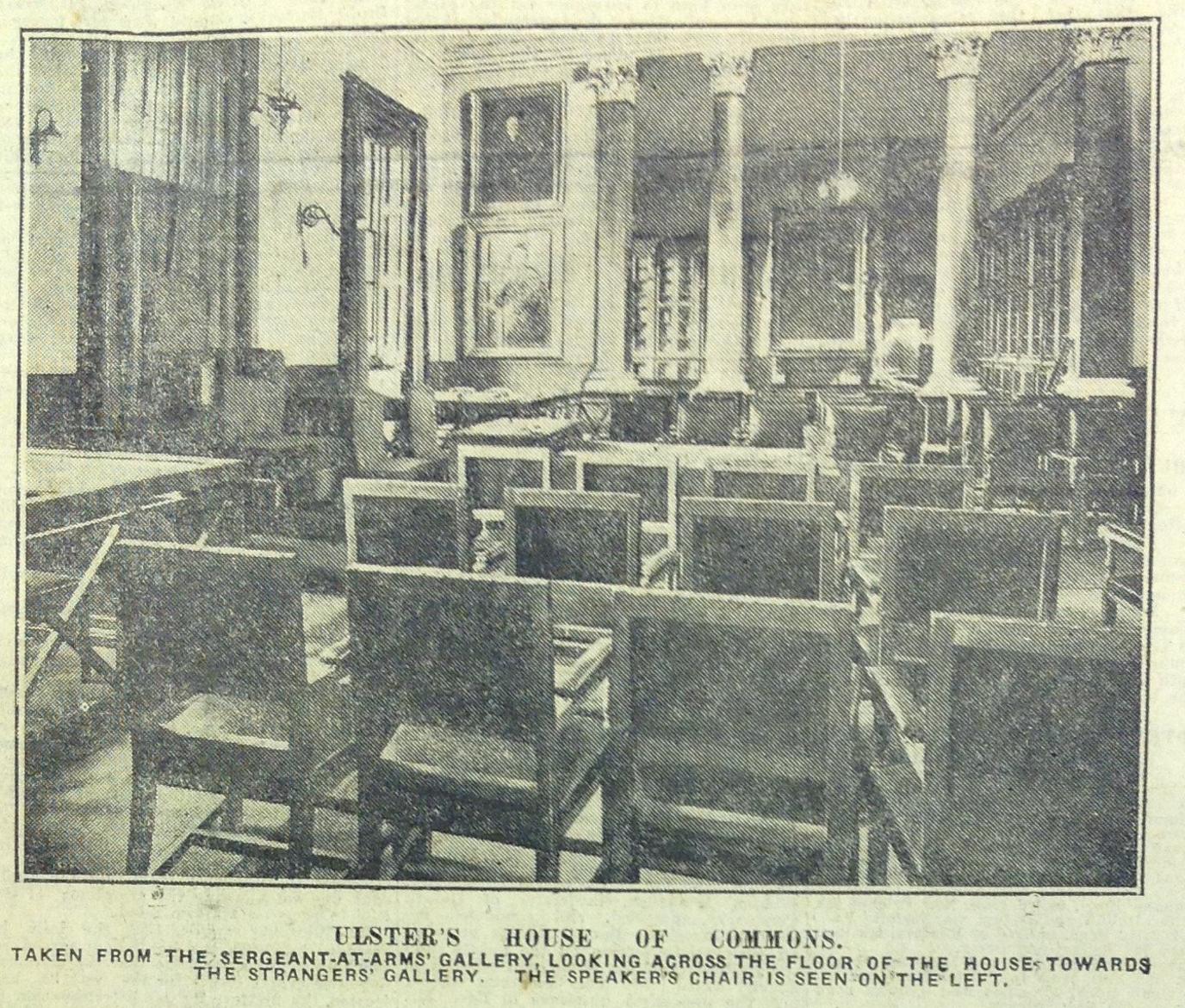
The House of Commons met in the spacious Gamble library
There was an upper and a lower house in the parliament, based on the Westminster model.
The 52-member House of Commons met upstairs in the spacious Gamble library, while the 26-member Senate met downstairs in the college chapel.
Pathé pictures from September 1921 show politicians gathering on the steps of the college before the first session of the new parliament. Sir James Craig, the first prime minister of Northern Ireland, was pictured along with his cabinet colleagues.
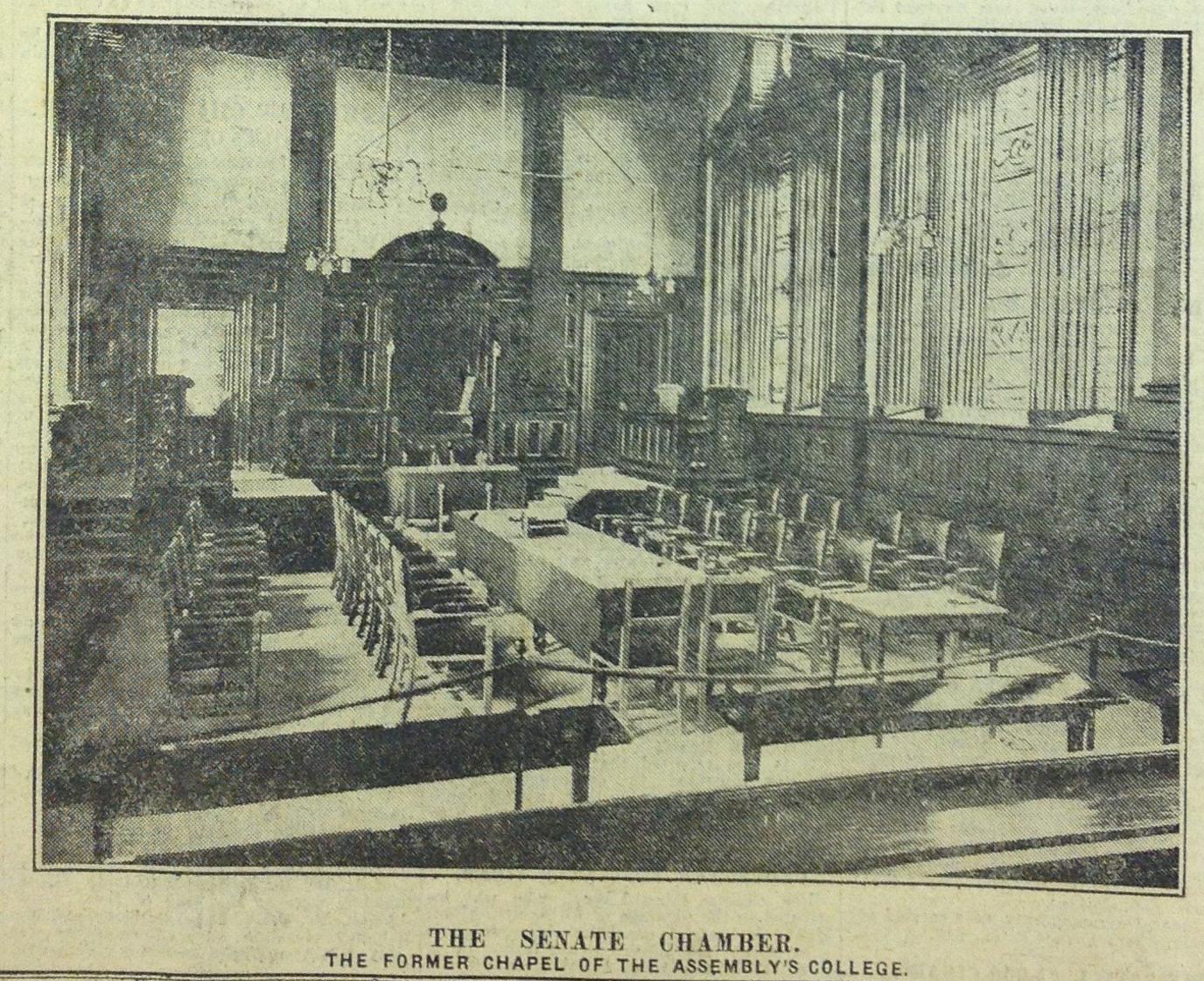
The college chapel where the Senate met
Letters, documents and pictures from the time remain in the building and have been put on display for the first time in an online exhibition on the college's website, external.
The college librarian Joy Conkey said: "We recently found some plans of how the college was used during the time of the parliament.
"They were here from 1921 to 1932, 11 years in total. Originally it was meant to be three years but it took a lot longer to construct Stormont."
A minute-book of the college trustees from the time shows there were detailed discussions about what changes to the building could be made while it was being used as a parliament.
Ms Conkey says: "There was also some debate and concern by the trustees about whether there would be a bar in the college."
In the end, there was no bar.
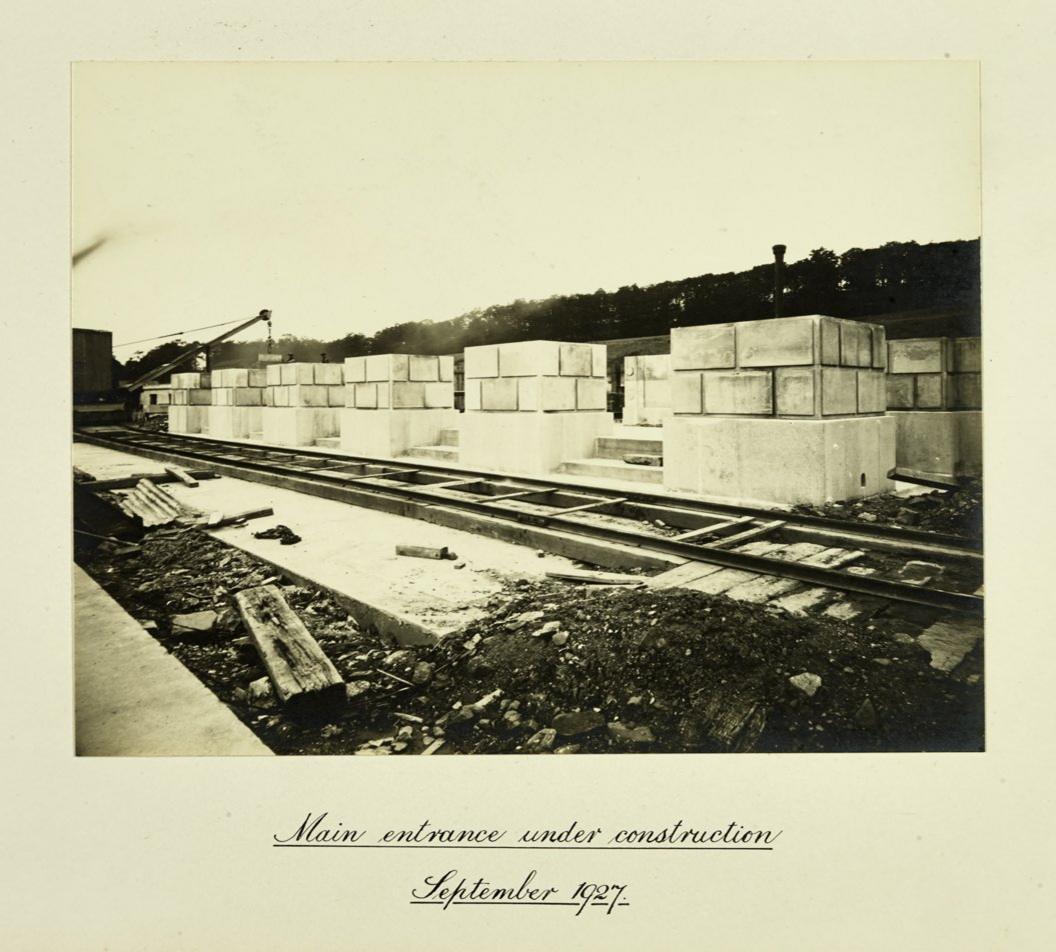
The parliament building on the outskirts of east Belfast was not completed until 1932
Originally known as the Assembly's College, it dates back to 1853. It was never considered as a permanent home for the parliament.
Although Stormont was the final choice, other venues were considered, including Belfast Castle and Belvoir Park.
One of the reasons Stormont was chosen was the space around it, 224 acres in total.
The building is 365 feet wide, one foot for each day of the year.
Related topics
- Published7 June 2021
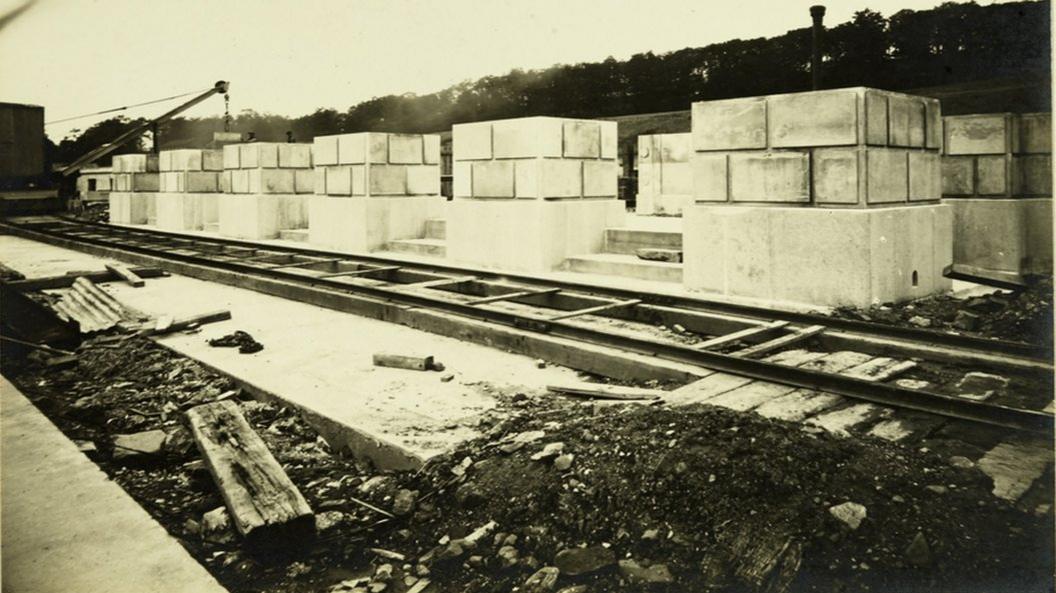
- Published3 May 2021
